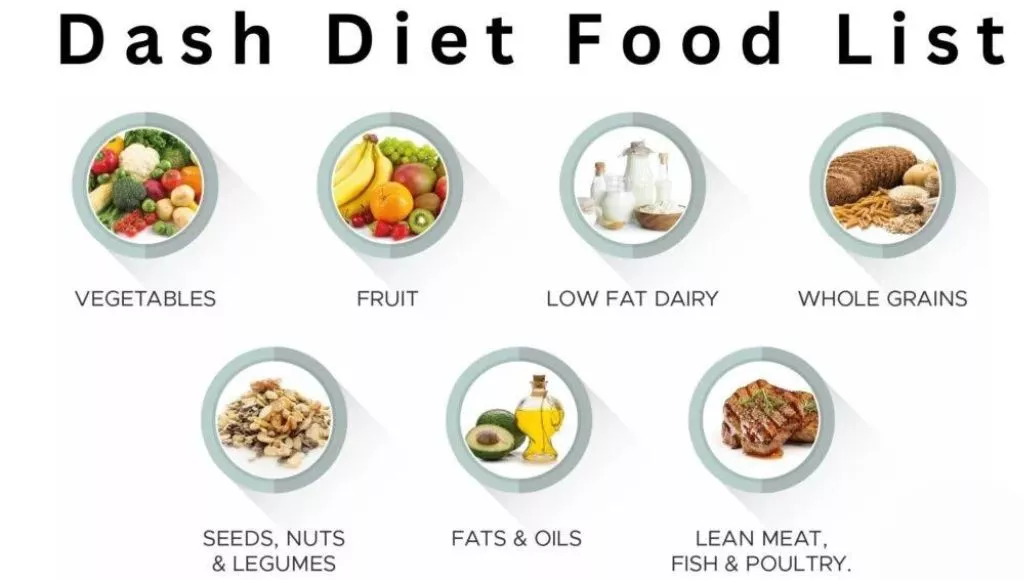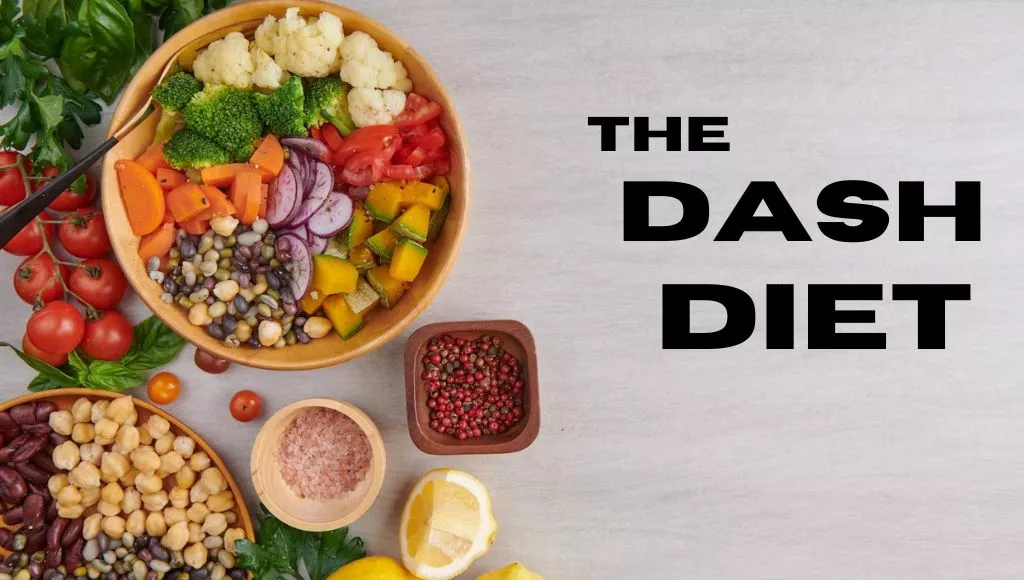The DASH diet ( Dietary Approaches To Stopping Hypertension). To combat high blood pressure through diet consists of two studies called DASH and DASH-sodium, which focus on ways to reduce hypertension by changing eating habits. The results of the first DASH study were published in 1997, and those of the second, DASH-sodium, in 2000.
During the DASH study, subjects were subjected to one of three diets. A diet with nutritional values rich in fruits, vegetables, and low-fat dairy products and low on saturated fats, total dietary fat, and cholesterol. In this article, we will look into a beginner’s guide to the DASH diet, forms of the DASH diet, why is blood pressure so important, and the uniqueness of the DASH diet.
The DASH Diet
According to the research carried out on the DASH diet, the results were extraordinary, both the vegetables and fruits enriched diet and dash diet lowered blood pressure. The DASH has a greater effect on blood pressure and blood pressure was lowered less than two weeks after starting the diet. Not only was blood pressure lowered, but total cholesterol and bad cholesterol (Low-Density Lipoprotein or LDL ) were also down.

DASH-Sodium
In the DASH sodium study, subjects were placed on a DASH diet containing one of three choices of sodium amount, i.e. 3,300 mg per day. All subjects’ blood pressure lowered, but the lower their salt intake, the greater the drop in blood pressure. Already, hypertensive subjects were those who showed the most marked remarks
Why Is Blood Pressure Is So Important
High blood pressure forces the heart to work harder to pump blood that contains oxygen and vital nutrients through the body. The arteries that carry blood become scarred, hardened, and lose their elasticity. Although this process is part of aging. It occurs more quickly in people with hypertension.
As the arteries harden the heart has to work even more harder, and the heart muscle weakened and thickened loses its ability to pump blood. When arteries are damaged by high blood pressure, the organs they supply can also be damaged. For example, this type of damage can affect the heart, or the brain causing a stroke, or the kidney causing kidney failure, and lots of other health problems in the body.
Also Check: 6 Best Ways To Normalize And Maintain Blood Sugar Levels
How Unique Is The DASH Diet Unique
The DASH diet is not so unique, but it is essential in controlling high blood pressure that may result in hypertension. Its recommendations are very similar to other healthy food guides. Indeed, we rely on the abundance of vegetables and fruits as well as consumption of whole grain foods and varied protein foods such as nuts, seeds, beans, lean meat, poultry, fish, plain, and low-fat dairy products. The DASH diet also provides a diet low in saturated fats, sugar, and salt.
The DASH Diet (DASH Food Group For Beginner’s Consideration)
Vegetables
- Grain Products (especially whole grain)
- Low-fat or fat-free dairy product
- Lean meat, poultry fish, meat, poultry, fish, nuts, seed and dried beans
- Number of DASH diet servings per plate (Unless otherwise noted) and sample serving sizes
Vegetable: 4 to 5 servings, 250 ml (1 cup) leafy vegetable
125 ml (½ cup) cooked vegetables
Fruit
- 4 to 5 servings, one medium size fruit
- 63 ml (½ cup ) dried fruit
Grain Products Especially Whole Grain
- Grain: 7 to 8 servings
- 1 slice of bread
- 250 meals (1 cup) ready to eat cereal
- 125 ml (½ cup) rice, pasta or cereal cooked
Low Fat or Fat-Free Dairy Products
- 2 to 3 servings.
- 250 ml (1 cup) milk
Also Check: Love Your Heart: 10 Easy Ways To Improve Heart Health
Guidelines To Follow While DASH Diet
An absolutely healthy lifestyle, which therefore involves a healthy diet, is part of the recommendations for the treatment of high blood pressure. The heart and stroke foundation participated in the definition of these guidelines, which are updated every year. To control your blood pressure and reduce your risk of cardiovascular disease.. below is what the guideline says
- If you drink alcohol, avoid having more than two drinks per day for a maximum of 10 drinks per week for women. ( avoid drinking while operating a vehicle, taking medication and other substances that interact with alcohol, are pregnant or planning to become ( need to make important decisions) engage in hazardous physical activity, or are responsible for other people’s safety. If you are concerned about the effect of alcohol on your health, consult your doctor
- Live smoke-free, or if you smoke and have high blood pressure, you must stop smoking. It increases your risk of heart problems and other diseases. Your home and workplace should also be a smoke-free place.
- Be active for at least 30 minutes a day or at least 3 times a week
- Take time to relax
- Take your medications as prescribed
- Measure your blood pressure at home
- Avoid drinking sugary drinks, and choose drinking water, low-fat meat, or tea
Conclusion
Finally, changing your eating habits is a long-term commitment to a healthy lifestyle. People who change their diet gradually rather than attempting dramatic changes all at once are more likely to stick to their new dish. To easily start the DASH diet, make changes gradually. If you usually eat one or two servings of vegetables per day, add one more serving at lunch and one more at dinner.
If you usually don’t eat fruits or only drink juice at lunch, add juice to your meal or opt for that food instead of juice. Limit your meat intake to 170 g per day for two meals. Each meal is about the size of a deck of cards or the palm of your hand. Eat fruits, vegetables, whole grain food, or protein foods for dessert and snacks. Eat a variety of food, if you are thinking about starting the DASH diet. Be sure to consult your doctor first

